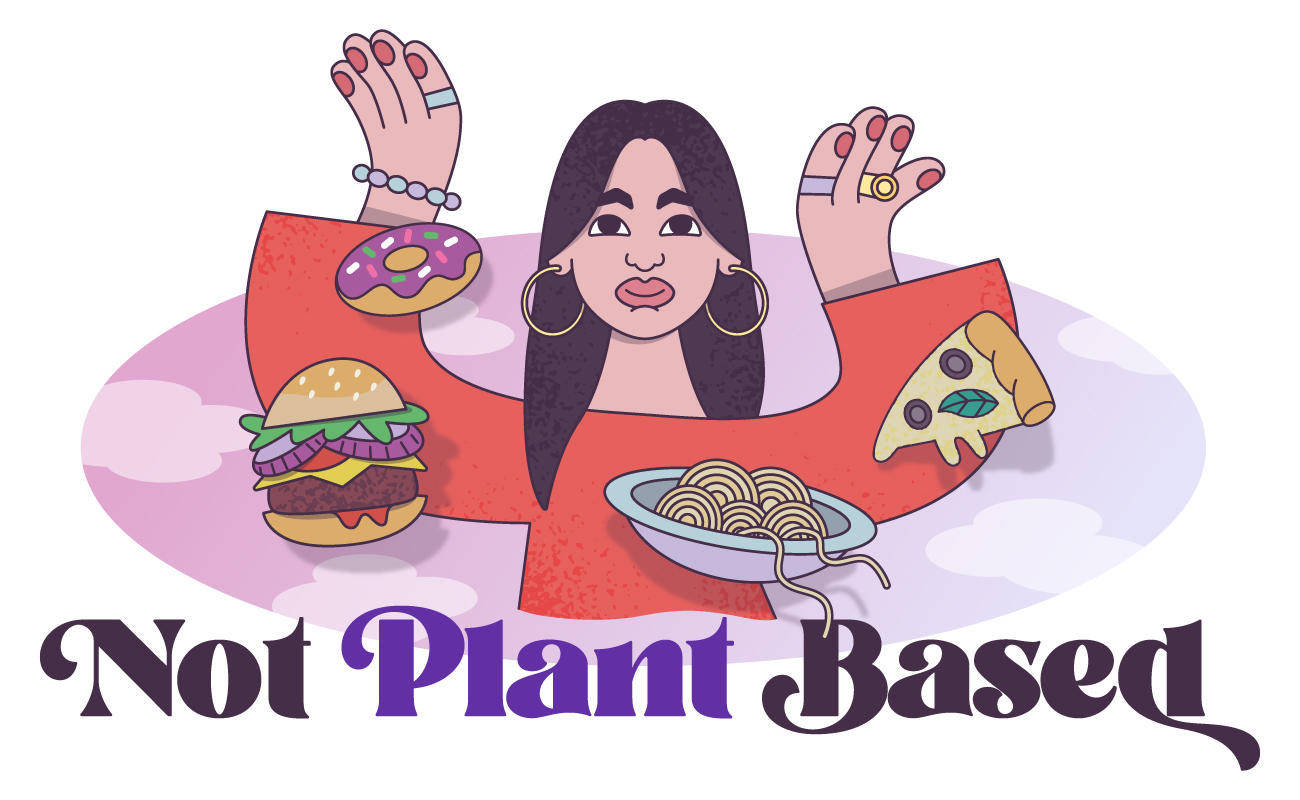
Working in pubs and various hospitality jobs for years quickly makes you realise that alcohol makes people talk a lot of shit. “I just need to cut back on the booze”, a local will say after his tenth pint, whilst looking regrettably at his gut, “and the weight will drop off me”, he clicks his fingers, “just like that!” He’s careful to conveniently ignore the bag of pork scratchings, pork pie and three packets of mini cheddars he’s also inhaled while he’s been here, so that his point won’t be redundent.
I’m certainly not one to scoff at someone’s pub habits. Believe me, I love a sticky Wetherspoons just as much as the next guy. But I can’t help but eye roll when I hear people solely blaming alcohol for their weight gain. And it’s not just Beer Belly Bill who thinks that alcohol alone will make you fat, either. It’s a popular story within any health publication you might be unfortunate to pick up still. Encouraging ‘tips’ for ‘alcohol swaps’ to “lose your gut” and scary calorie comparisons between a box of doughnuts and a bottle of wine are enough to scare anyone into believing that a pint is the fastest way to poor health and thickened thighs (not that we are particularly scared of those here).
So, let’s sort this out and give Bill the salty shaking he’s been craving. Let’s once and for all tackle the myths surrounding alcohol and weight gain, and decide whether it is possible to have a healthy relationship with alcohol, and let’s do it sharpish so we can all make it down the pub before last orders.
Dietitian and eating disorders specialist Ursula Philpot is going to help me out with this one. Thanks Ursula. IOU a wine.
Does alcohol make you fat?
A very broad question indeed for Ursula to begin with, but she tackles it with diplomacy, agreeing that it can be a “contributing factor” to weight gain. Like food, alcohol will affect different people’s weight differently. For example, a youngster enjoying fresher’s week at university will translate the calories in alcohol differently to a sedentary person in their 50s.
However, “the calories from alcohol are a bit theoretical”, she says. If you worked out the calories consumed by an alcoholic who doesn’t eat all day, only drinks, that person should in theory be very overweight. But actually, alcoholics tend to be very skinny. On paper, alcohol is meant to contain seven calories per gram, but the reality is very different. “There is something about the way that alcohol is metabolised within the body.” The body doesn’t tend to convert the calories in alcohol the same way it does food.
It’s a complicated bit of biochemistry to understand, but Serious Eats gives it a good go…
“Machines burn alcohol efficiently. Human beings do not digest alcohol efficiently.
We’ve all heard at some point in high school health class, alcohol is a toxin. And our bodies work actively to excrete toxins. As Wikipedia helpfully explains, the metabolism of alcohol is a complex, multi-stage process that takes place mostly in the liver and kidneys, not in the intestines, where normal digestion occurs.
More significant to the current discussion, the Wikipedia article explains that alcohol is almost never fully metabolised, but rather excreted as acetic acid (because it’s a toxin and we want to get rid of it, remember?). This implies that we are getting far less than the theoretical maximum of seven calories per gram from alcohol.”
Are spirits ‘better’ than wine and beer?
We’re back to the ‘alcohol swaps’, here. Diet culture might have us believe that if you are trying to lose weight, it’s better to swap your pint of lager for a vodka and slimline tonic (blurgh) due to their calorie content…but is this just a myth? Is it better to stick to spirits if you’re trying to manage you’re weight? “Not really”, Ursula says, citing alcohol’s theoretical calories as the reason for this. “If you’re someone who drinks wine and you switch to spirits, you’re not going to lose weight by doing that.” Equally, if you have an eating disorder (or still do) and you start drinking beer and wine, “that won’t help with weight gain either”.
“It’s about looking at the whole picture”, Ursula explains. “If you are going to the pub every night and drinking five or six pints, yes that’s going to contribute to weight gain.” But just like having an odd ice cream or biscuit, occasional drinking won’t make much of a dent to your weight, no matter your choice of tipple.
Are beer bellies real?
In short? Kind of. “If you think about the lifestyle of people with beer bellies”, Ursula says. “They’re people who goes to the pub most nights and drinking, or they sit at home drinking –
they’re also likely to be snacking. They’re also likely to be someone who doesn’t really take care of themselves.” Weight gain is not typically caused by one culprit alone. Smoking, little exercise and overeating are all factors to consider.
Ursula adds: “Yes, if you are drinking heavily, regularly and daily, eventually that will add to your total calorie intake, which can then increasing weight gain. But actually, drinking on the weekends is what most people do and for most people that won’t contribute significantly to weight gain.”
Does drinking alcohol make you eat ‘unhealthy’ food?
“It can do”, Ursula says. “It comes down to how much you’re drinking and how you’re feeling. Obviously if you’re hungover, your blood sugars get quite low and you’re going to crave high fat, high sugar foods.” If you suffer with disordered eating, excessive drinking can leave you “vulnerable” to unplanned eating. This could be a problem, especially if you suffer with binge eating disorder. If you are someone who restricts your food, and you drink a lot, it might mean that you’ll eat more than planned, because you won’t care as much about “losing control”…because you’d be drunk.
“It [drinking] definitely has an influence on appetite”, but for most people who drink sensibly, it’s not going to be problematic. Ursula adds that “it would be drinking on an empty stomach that would be a problem”.
Can you have a healthy relationship with alcohol?

Or should we all be striving to all go cold turkey?
Much to my relief, Ursula says, “I don’t think there’s a need to completely give it up.” The UK are a nation who loves alcohol, and if you asked the majority of the population they would not be willing to give it up. “It’s unrealistic”, she says. “If you look at the Mediterranean diet, which is held up as the ‘best’ diet, alcohol is in there, it’s not excluded.” Ursula suggests “pacing yourself” throughout the week by having 2-3 days off. If you drink at home, be careful with “generous” measures.
Putting aside weight gain for a moment, because that shouldn’t be a worry unless you’re a really heavy drinker…it’s important to try to stick to the recommended amount of alcohol per week because of the risks of brain damage, damage to cells and cancer drinking in excess can cause.
So what is the recommended alcohol intake during a week?
It’s 14 units for both men and women, now (it used to be more for men). Think of 14 units as either six pints of beer a week, or six 175ml glasses of wine.
Can some alcoholic drinks be nutritious?
My dad, during his professional footballing days, was once advised by a dietitian to drink more Guinness as he was lacking in iron. So Ursula, is this a thing? “That’s a myth unfortunately. It doesn’t contain a huge amount of iron, and whatever iron is in there doesn’t absorb well.”
Sorry Dad.
So we don’t have an excuse to bump up our pints of Guinness, but Ursula does say that “there is some evidence that red wine seems superior in terms of its antioxidant properties – properties that will help to fight cell damage. It’s a very tentative link though.” The nutritional benefits of alcohol are a difficult thing to measure scientifically, as you’d need a large group of people who were willing to only drink red wine for a long period of time, for example, and one group to drink something else in order to compare.
The takeaway from this would be not to seek your nutrition from alcohol specifically, but to enjoy it as part of a balanced, rounded diet. But you knew that already, right? Another takeaway would be cheesy chips with garlic mayo, because there is simply no better way to handle a hangover.



